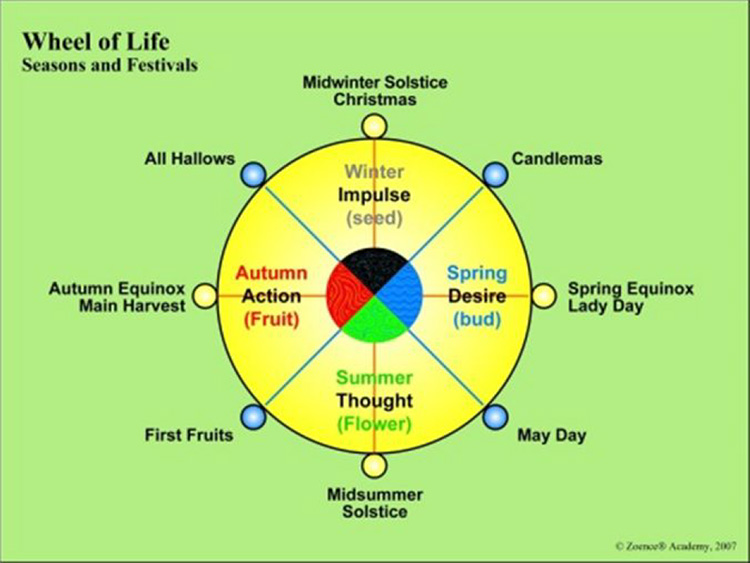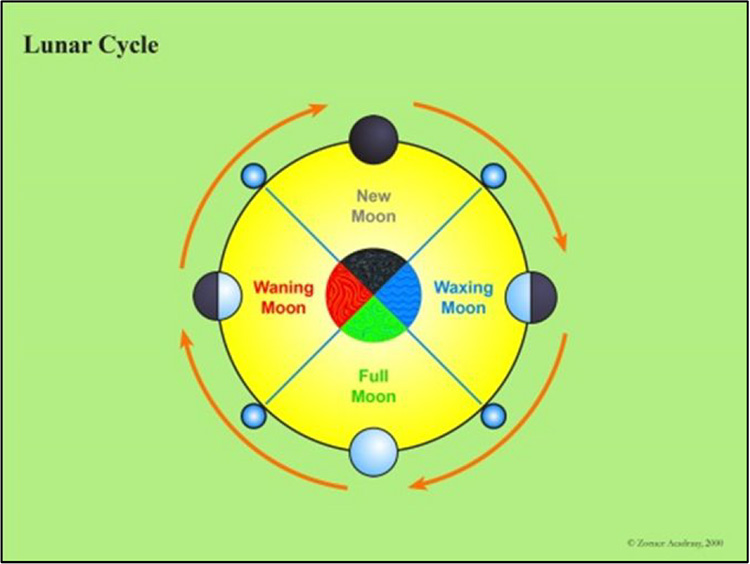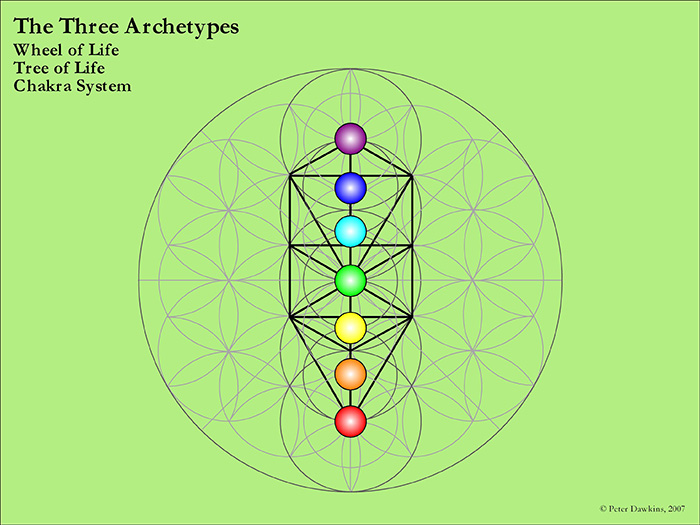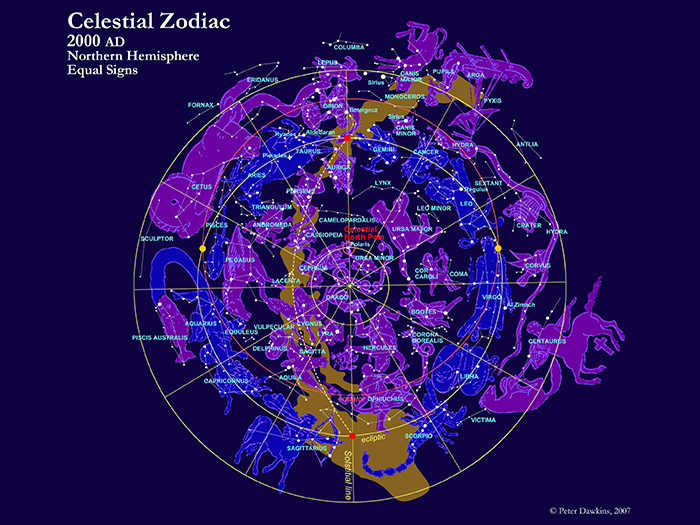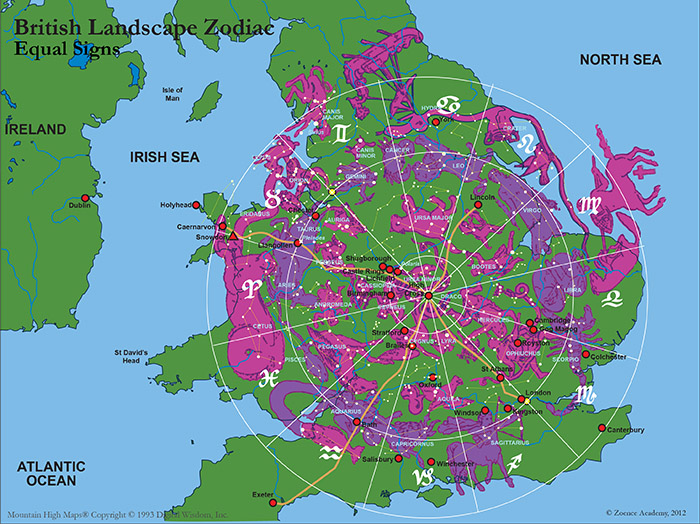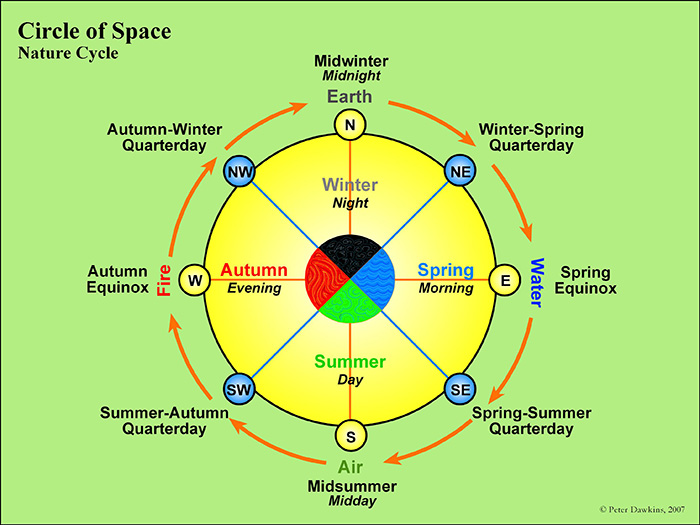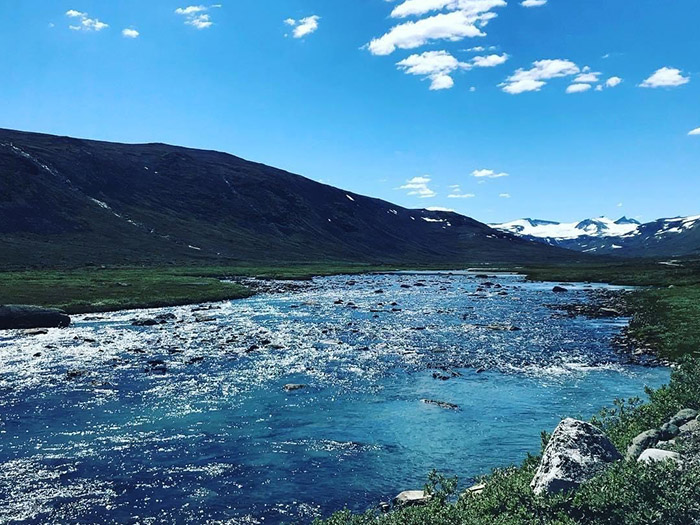The Great Festivals
The Great or World Festivals mark the key divisions of the lunar and solar cycles.
The principal lunar cycle is a lunation—a period of 29-30 days, which approximates to (but is not quite) an average calendar month. The lunar festivals normally celebrate the Full Moon of each lunation.
The solar cycle, on the other hand, is the annual cycle—the calendar year. The solar festivals celebrate the solstices, equinoxes and quarterdays of each year.
These World Festivals celebrate the great power-points in time that affect us and nature profoundly—although there is a distinct and important difference between the lunar and the solar. The solar cycle and festivals are to do with the Sun and the outpouring of light and life, whereas the lunar cycle and festivals are to do with the Moon and the reflection of the Sun's light back to Earth. The solar are associated with our divine spirit and the creative and illuminating life forces; the lunar are associated with our psyche and the modulating forces that affect the basic patterns and operations of the life force. The solar relates to wisdom and ‘fire’; the lunar relates to intelligence and ‘water’.
It is important and beneficial to recognise both cycles and, if possible, to celebrate both—or, at least, to choose one of the cycles to celebrate whilst leaving others to celebrate the other cycle, so that a balance may be achieved.
Why is such festival celebration beneficial? Because with each festival we generate a lot of goodwill and joy, which is an energy and a consciousness. This is focused, like a lens, by the event. With the celebration of the Great or World Festivals this energy of goodwill and joy is added to the world consciousness and planetary body in a rhythmic way and in harmony with the Earth-Sun and Earth-Moon relationships, which are to do with the giving and receiving of light. And, as most people know, doing something in a rhythmic way is a powerful thing, as also is the giving and receiving of light.
The Great Festivals, moreover, transcend religion and culture. If we were to celebrate them all over the world—and especially if in the right places, the key places of the landscape—then the beneficial effect they could have on the whole world would be enormous.
© Peter Dawkins
- Zodiac of Ages
- The Great Ages
- The Phoenix Cycle
- The Solar Breath
- The Grail Cycle
- The Great Festivals
- Solar Festivals
- Winter Solstice
- Winter-Spring Quarterday – Imbolc
- Spring Equinox
- Spring-Summer Quarterday – Beltaine
- Summer Solstice
- Summer-Autumn Quarterday – Lammas
- Autumn Equinox
- Autumn-Winter Quarterday – Samhain
- Lunar Festivals

